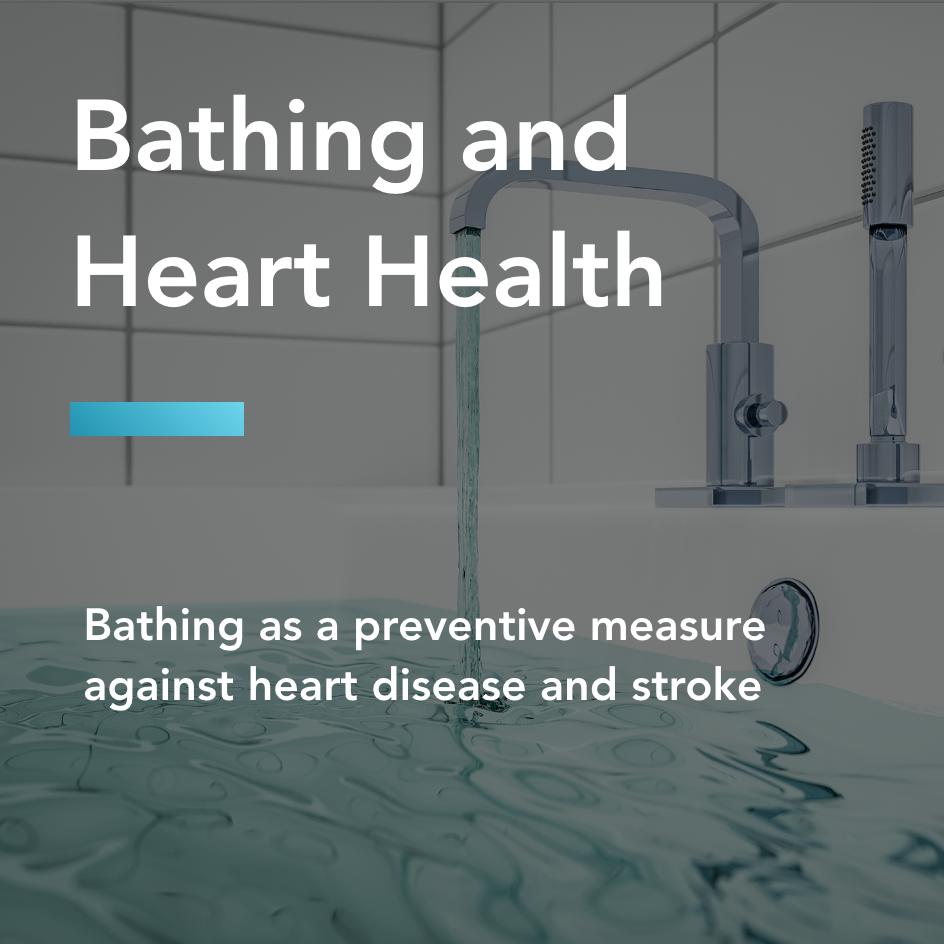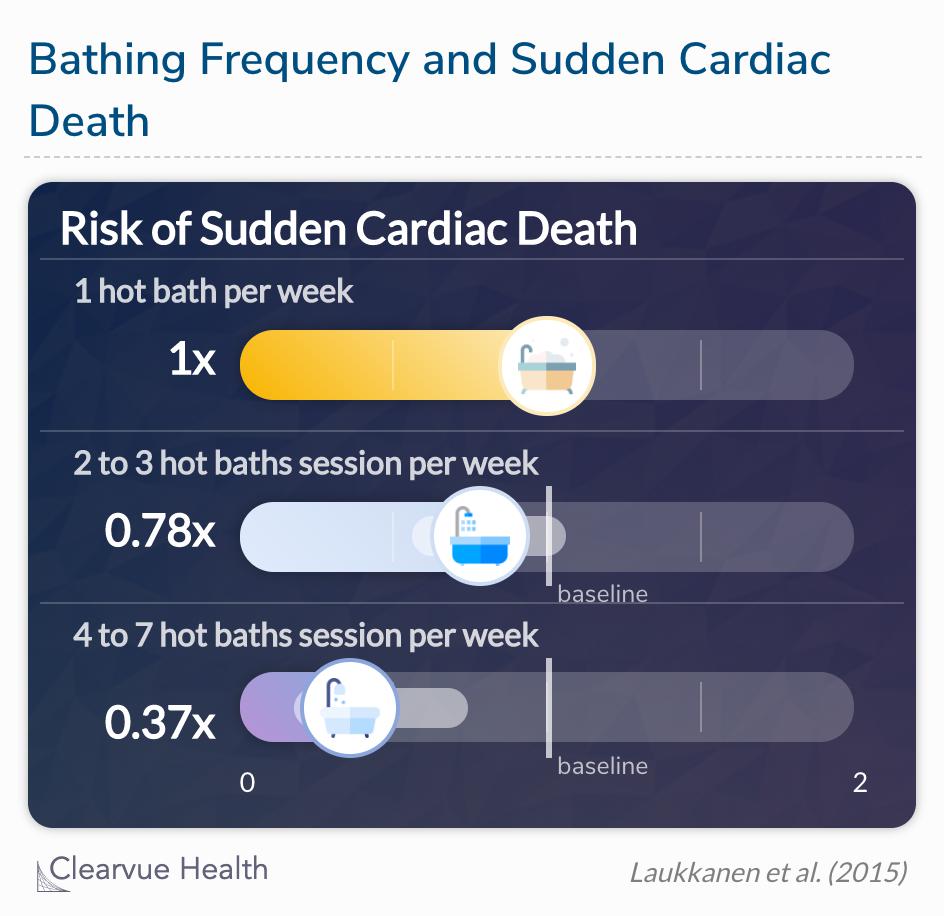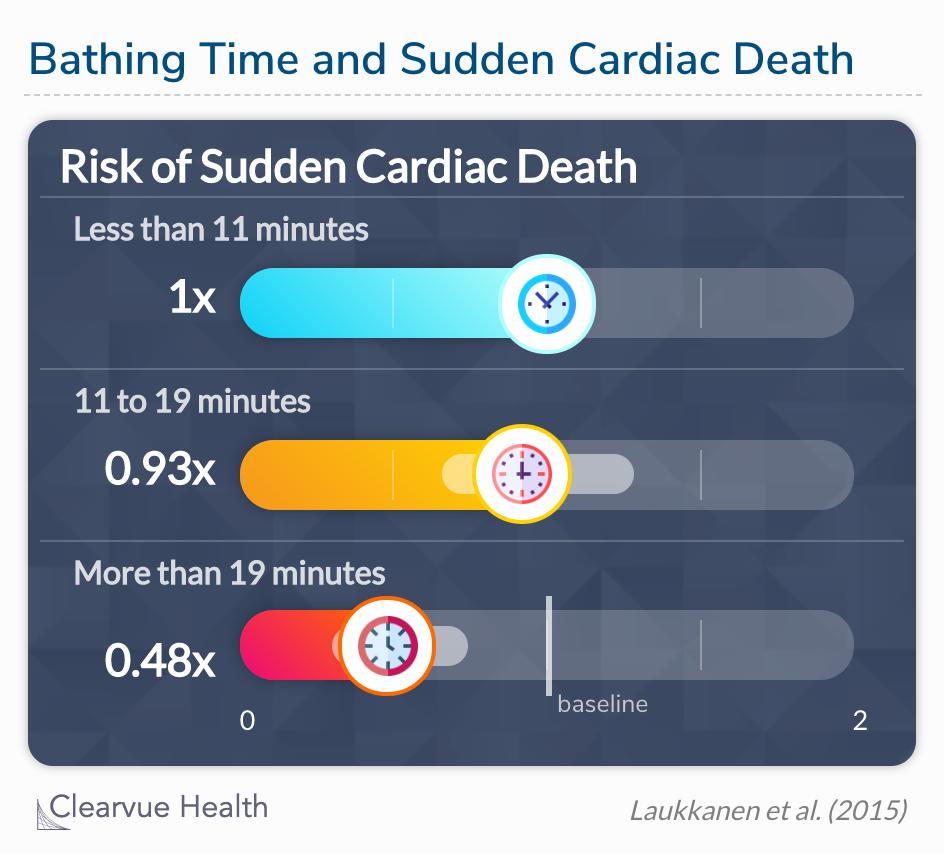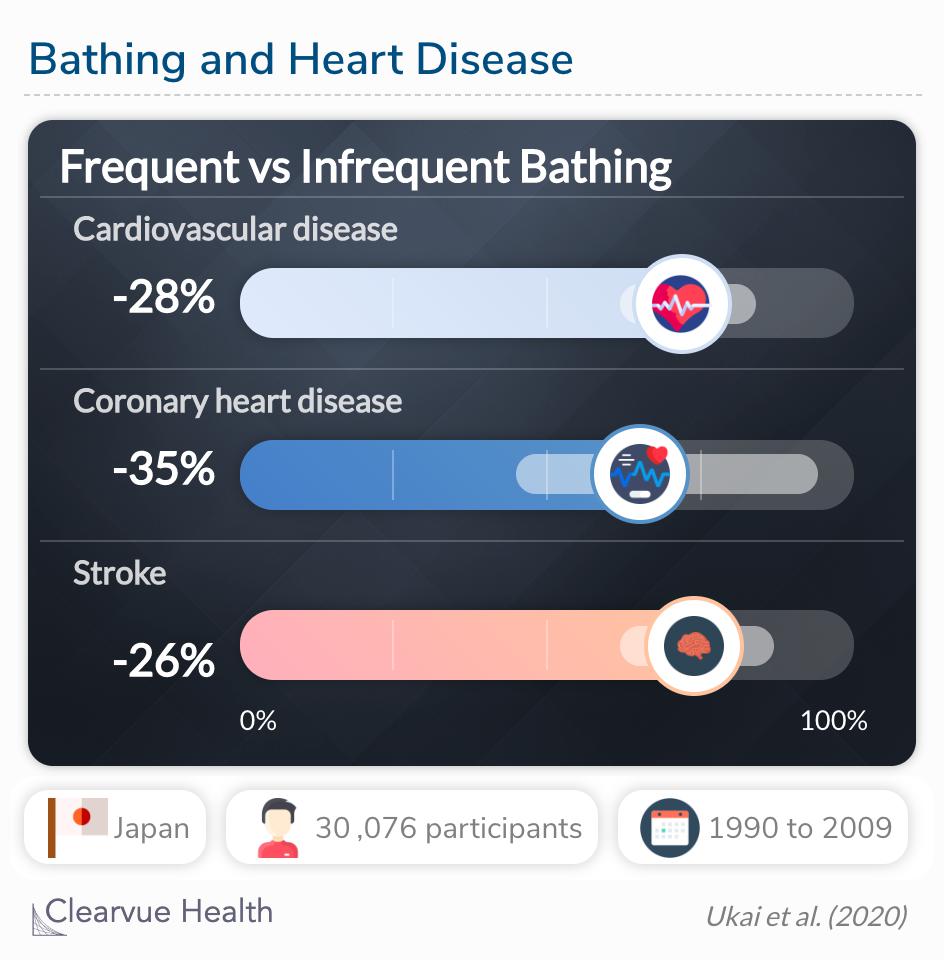bathing and heart health: bathing as a preventive measure against heart disease and stroke
Taking a bath is a classic form of self-care. There is an entire industry dedicated to relaxation-enhancing bath products such as bath pillows, bath bombs, bath oils, waterproof speakers, and tub book holders. Even without these accessories, a warm bath can be a useful stress reliever. In addition, research has been published on the potential long-term benefits of tub bathing beyond self-care.
Heart disease and all-cause mortality
A study published by JAMA investigated the association of frequency and duration of bathing with the risk of sudden cardiac death. Sudden cardiac death happens due to an unexpected change in heart rhythms and overall heart function. The researchers analyzed this condition with bathtub habits in a sample of men from Finland.
After adjustment for CVD risk factors, compared with men with 1 sauna bathing session per week, the hazard ratio of SCD was 0.78 (95% CI, 0.57-1.07) for 2 to 3 sauna bathing sessions per week and 0.37 (95% CI, 0.18-0.75) for 4 to 7 sauna bathing sessions per week (P for trend = .005).
Source: Association Between Sauna Bathing and Fatal Cardiovascular and All-Cause Mortality Events
First, the researchers measured bathing frequency. Based on the data, researchers identified a decreased risk of sudden cardiac death among men who took a hot bath 4 or more times per week compared to no baths. They found no difference in risk when comparing those who took 1 to 3 baths. This evidence suggests that frequent bathing has an effect on heart health.
Compared with men having a sauna bathing session of fewer than 11 minutes, the adjusted hazard ratio for SCD was 0.93 (95% CI, 0.67-1.28) for sauna bathing sessions of 11 to 19 minutes and 0.48 (95% CI, 0.31-0.75) for sessions lasting more than 19 minutes (P for trend = .002).
Next, the researchers looked at bathing duration as a protective factor against sudden cardiac death. They found that the men needed to bath for at least 19 minutes each time to observe a decrease in their risk of sudden cardiac death. These men cut their risk in half. Bathing for less time was no significantly associated with a risk reduction. Together, these statistics advocate for hot baths that are both frequent and long.
Heart disease and stroke
A different article published in the BMJ helped solidify the theory that frequent bathing can improve heart health. This was a large Japanese study with over 30 thousand participants who reported their medical events and were classified by bathing frequency: zero to two times/week, three to four times/week, and almost every day.
The multivariable HRs (95% CIs) for almost daily or every day versus zero to two times/week were 0.72 (0.62 to 0.84, trend p<0.001) for total CVD; 0.65 (0.45 to 0.94, trend p=0.065) for CHD; 0.74 (0.62 to 0.87, trend p=0.005) for total stroke; 0.77 (0.62 to 0.97, trend p=0.467) for cerebral infarction; and 0.54 (0.40 to 0.73, trend p<0.001) for intracerebral haemorrhage.
Source: Habitual tub bathing and risks of incident coronary heart disease and stroke
Based on the analysis, participants who reported frequent bathing had a reduced risk of cardiovascular disease, coronary heart disease, and stroke. Unlike the previous study, this analysis did not find significant associations between bathing and sudden cardiac death. Therefore, the evidence remains unclear as to which heart conditions are or are not associated with hot baths.
Final thoughts
These studies suggest that increasing the frequency and duration of hot baths could provide protection against heart-related medical conditions. However, the evidence is unclear as to the exact conditions most impacted by bathing or why this association exists, but there are a few theories. It is possible that the warm water somehow improves blood flow throughout the body. It is also possible the stress-relieving properties of bathing contribute to the overall improvement in heart health. Or, it could simply involve the practice of good hygiene and cleanliness as a protective factor. The best explanation is that these factors, along with others, all work together in the association between bathing and heart health.








































